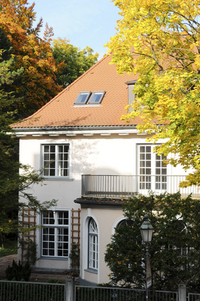Organizers:
- Jonathan Harrington
- Marianne Pouplier
Spoken language communication is one the one hand an inherently dynamic activity in which the sounds of speech overlap with, and influence each other in time. Speech is also infinitely variable not just because of the very obvious effects of speaker differences (biological age, gender, dialect) on the acoustic signal, but also because speech production is adapted to the plethora of social and communicative contexts in which it occurs. At the same time, there is considerable evidence that the sounds of speech are grammatically organised around a finite and permutable set of consonants and vowels that function to distinguish meaning. Recent evidence from child language acquisition shows that this so-called phonological code is acquired as the child's vocabulary grows: it is because of phonological processing that children and then adults can combine consonants and vowels in novel ways to produce new words that they have not previously heard. Moreover, phonological processing is a necessary abstraction from the details of speech dynamics that enables listeners to search rapidly through the mental lexicon in order to recognise the words of utterances. A very much unresolved issue with which this seminar will be principally concerned is how these two types of speech processing - infinite speech dynamics on the one hand, abstract phonological processing on the other - are interconnected. Some of the main themes to be considered include:
- how regularities across languages in the phonological code are constrained by the physiological and perceptual boundaries of the human speech communication system.
- the contribution of second language acquisition and spoken language disorders to understanding how speech dynamics and phonological abstraction are related and how foreign accent and phonological disorders are situated between the grammar and the physics of speech.
- whether the very rare types of phonological categories and sequences in the world's languages place different demands on the speech production and perception system (or are processed differently in speech communication) compared with those that more commonly occur. A related issue is whether such rare sequences are acquired differently or later in both first and second language acquisition, and whether they are affected differently in speech disorders.
Inquiries can be sent to pouplier@phonetik.uni-muenchen.de.
The workshop will be held on 17th and 18th of May, 2016. It is part of the LMU CAS Research Focus “How Words Emerge and Dissolve”.
The workshop is hosted by:
Institute of Phonetics and Speech Processing
Ludwig-Maximilians-Universität, München, Germany
Address: Schellingstr. 3, 80799 München, Germany
Phone: +49 (0) 89 / 2180 - 2758


